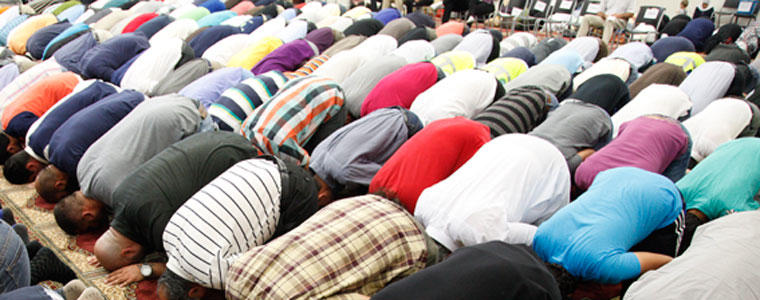Ambassador Johnson Cook, Specialists Consider Role of Civil Society in Religious Coexistence
The U.S. State Department’s “strategic dialogue” with international civil society, including faith leaders abroad, is underway and “planting seeds for the future” in fostering peaceful religious coexistence, Ambassador Suzan Johnson Cook, the U.S. ambassador-at-large for international religious freedom, said at the U.S. Institute of Peace (USIP) on October 22.

The U.S. State Department’s “strategic dialogue” with international civil society, including faith leaders abroad, is underway and “planting seeds for the future” in fostering peaceful religious coexistence, Ambassador Suzan Johnson Cook, the U.S. ambassador-at-large for international religious freedom, said at the U.S. Institute of Peace (USIP) on October 22.
“The conversation has begun,” said Johnson Cook, appearing at an event on “Religion, Violence and Coexistence.” “People do want us to be in a listening posture.”
Co-sponsored by USIP and the Office of International Religious Freedom at the State Department to mark International Religious Freedom Day on October 27, the discussion took as a touchstone the Internet release of a trailer for the anti-Islam film, “The Innocence of Muslims.” That act sparked protests abroad, some of which turned violent. Panelists at USIP noted that the film trailer and the response to it brought into sharper relief the complicated relationships among freedom of expression, religious coexistence and freedom, violence and security.
Johnson Cook described the core challenge of determining “how to preserve our fundamental freedoms while advancing, at the same time, peace, security and coexistence.” She concluded that “government officials cannot do this work alone. …We rely on consultations and these partnerships with civil society leaders and faith-based organizations to help us seek deeper analysis and more effective initiatives.”
USIP’s Center of Innovation for Religion and Peacemaking operates programs in Pakistan, Iraq, Sri Lanka, Burma, Nigeria and Colombia. “We work with religious and government institutions and civic organizations to transform religious drivers of violence, to deepen and extend inter-religious coexistence and to leverage the power of religious resources for the work of creating sustainable peace,” said Susan Hayward, a senior program officer at USIP. “We consider religious freedom to be an important aspect of our work.”
Manal Omar, director of USIP’s Iraq, Iran and North Africa programs, said the tensions between freedom of speech and religious sensibilities can be particularly acute in “destabilized and traumatized nations,” namely those having gone through the upheavals of the Arab Spring. The recent video trailer is experienced as a source of humiliation by societies experiencing turmoil, she said.
In order to credibly participate in discussions about the recent violence and similar incidents, countries in the West will need to examine Islamophobic attitudes and extremist organizations in their own societies, Omar said. She also noted that some Arab civil society groups have felt a need to “scrub” their links to faith-based origins or agendas in order to attract international funding. But that risks delegitimizing these groups in the eyes of their publics, who are more comfortable integrating aspects of faith with peacemaking activities, she said.
Hoda Elshishtawy, a legislative and policy analyst with the Muslim Public Affairs Council (MPAC), said that freedom of expression and religion “are not stand-alone issues.” She said her group had responded to the “Innocence of Muslims” incident with an approach that condemns hate speech while supporting freedom of expression worldwide. MPAC has used YouTube and other social media to disseminate footage of American Muslim scholars critiquing both the film trailer and violent responses to it, thereby countering mainstream media’s focus on images and voices of violent Muslim protest. “Civil society needs to hold mainstream media accountable for highlighting one extreme narrative,” she said of the tendency to focus on incitements to violence rather than on stories of coexistence.
The media often “crave drama,” added Marc Gopin, director of the Center for World Religions, Diplomacy, and Conflict at George Mason University in Virginia. Civil society efforts to counter messages of intolerance have to be waged on the same media stage, he said. “You have to put it in people’s faces,” Gopin said.



